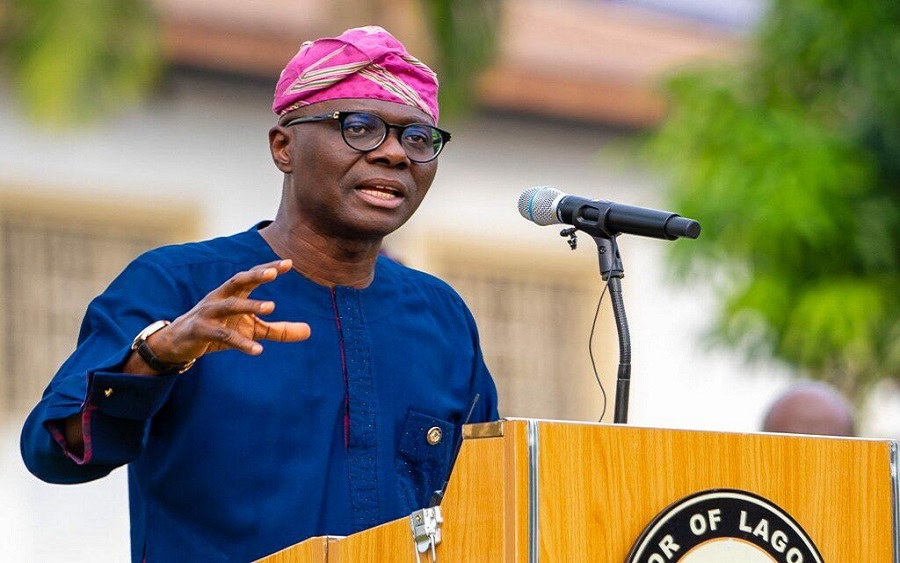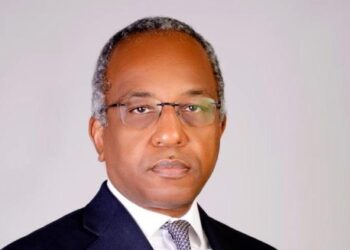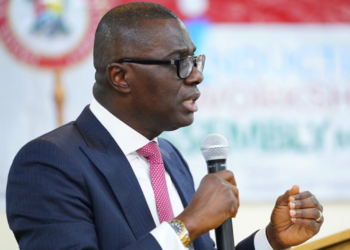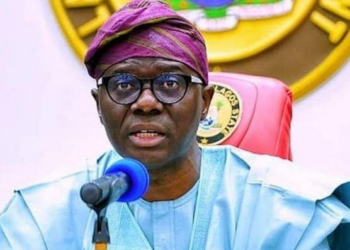The Lagos State Governor Babajide Sanwo-Olu stated that the demand for a new revenue-sharing model between the states and the federal government is fair and just, citing that states need more capacity to take care of their needs.
The Governor disclosed this on Monday at the two-day South-West Zonal public hearing on the Review of Allocation formula by the Revenue Mobilization Allocation and Fiscal Commission (RMAFC), reported by the News Agency of Nigeria.
Sanwo-Olu also hinted that in Lagos State’s case, it needs the “Special Status’’ due to the nature of its size and importance, which comes at a considerable cost.
What Governor Sanwo-Olu said
“It is self-justifying and in no way controversial,” Sanwo-Olu stated, adding that the state is demanding a reviewed sharing formula that is just, fair and equitable, which reflects the contribution of stakeholders to the common purse.
“States also want a revenue formula that enhances the capacity of states and local governments to deliver high-quality services and the full dividends of democracy to the greatest number of Nigerians,” he said.
He urged that a review of Nigeria’s revenue-sharing model is long-overdue, citing Lagos State’s special case which directly and indirectly affects the growth prospects of the region and the country.
“The best way to guarantee national progress and development is by paying attention to subnational development because the national is a summation and a reflection of the subnational,’’ he said, also stating that different calls for a review of Nigeria’s economic structure should not be ignored.
“Lagos State was the epicentre for COVID-19, the same way it was for Ebola virus some years ago. The management of these unforeseen occurrences comes with huge responsibilities and financial commitments on the part of the state government.
“Although we have put that experience behind us and forged ahead, the reality of these unfortunate incidents remains with us; resources that should be committed to other areas of need are now being used for the restoration of damaged public facilities.
“It will be totally unfair for Lagos State to be left alone to bear these huge expenses without assistance from the centre.
“COVID-19 pandemic is another issue that has once again, supported the justification for Lagos State to be accorded the privilege of special status,’’ Sanwo-Olu said.
He added that it would be in Nigeria’s best interest for Lagos State to be accorded special status as the state accounts for about 20% of GDP and 10% of Nigeria’s population centre.
“There are several statistics that show the number of people that come into Lagos every day; there are clear indications that most of these people migrate with the intention to make Lagos their new home and in pursuit of personal dreams the city-state seemingly possesses.
“This portends additional responsibilities on the government.
“Additionally, Lagos still harbours a huge number of federal establishments which could not be moved to Abuja.
“These include military cantonments and barracks, Police, Customs, Immigration, Civil Defence, Prisons, Road Safety and security/intelligence establishments,’’ he said.
What you should know
Recall the Court of Appeal in Abuja granted the request of the Lagos State Government to be joined in the suit challenging the collection of Value Added Tax (VAT) of states.
The Lagos State Government had in the suit sought to join the Rivers State Government in the appeal filed by the Federal Inland Revenue Service (FIRS) against the judgement of the Federal High Court in Abuja, which empowered Rivers state to collect VAT and not the federal tax authority. The case was adjourned to October 7 and will be heard at the Appellate Court in Port Harcourt.



















